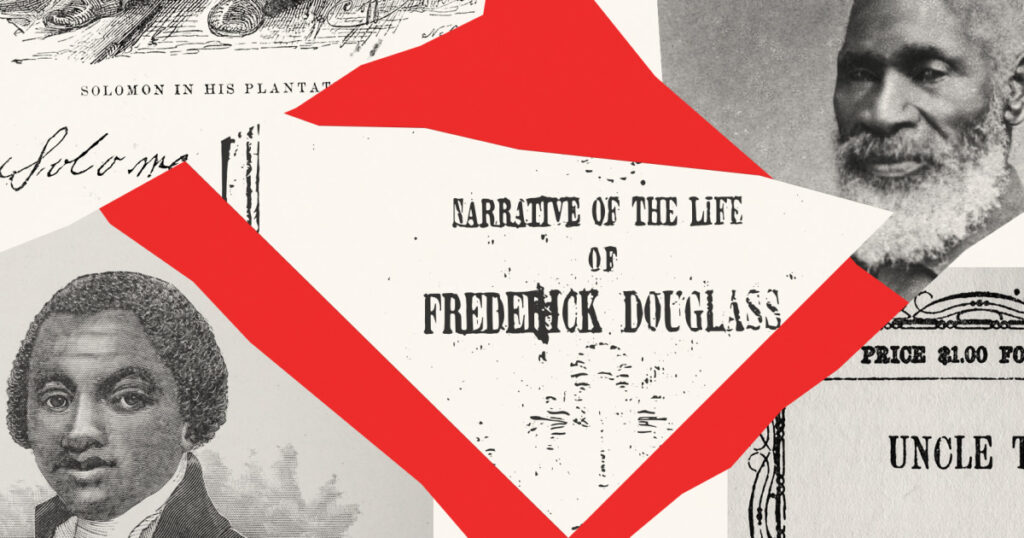In the everlasting faceoff between Black history and America’s self-conception, it’s worth revisiting one of the fight’s earliest and most valiant weapons of war: the slave memoir.
Narratives by formerly enslaved writers like Olaudah Equiano, Frederick Douglass and Solomon Northup were critical to shedding light on the otherwise unthinkable realities of enslavement. Whatever idea of civility and morality America wanted to project to the world, slave memoirs were gutting proof to the contrary.
“They emphasize the torture, they emphasize the separation of families, they emphasize the slave trade that would reduce human beings to property.”
“The Narrative of the Life of Frederick Douglass” — one of the foremost examples of the literary genre — offered a firsthand glimpse into the depravities that constituted chattel slavery. In it, Douglass recounts being emotionally and physically brutalized by Edward Covey, who had a reputation as a “slave-breaker,” and watching slaveholders cite Bible verses as they whipped the enslaved, among other atrocities.
The scholar says he was first introduced to the cruelties of enslavement when he saw his Aunt Hester stripped and beaten by her slaveholder, Captain Anthony. Douglass writes that his aunt was being punished for going against Anthony’s demands. But the author also suspected the slaveholder had a sexual interest in his aunt and that his attack was retaliatory because she’d recently spent time with a male slave. (Harriet Jacobs’ 1861 “Incidents in the Life of Slave Girl” also provides further insight into the deplorably complex experiences of enslaved women.)
Accountability was also a critical component of the memoirs.
In documenting some of the cruelest people to deprave American soil, some authors named names, making efforts to whitewash slaveholders’ legacies all the more difficult. For instance, a quick Google search for the aforementioned Covey shows Douglass’ memoir as largely…
Read the full article here





